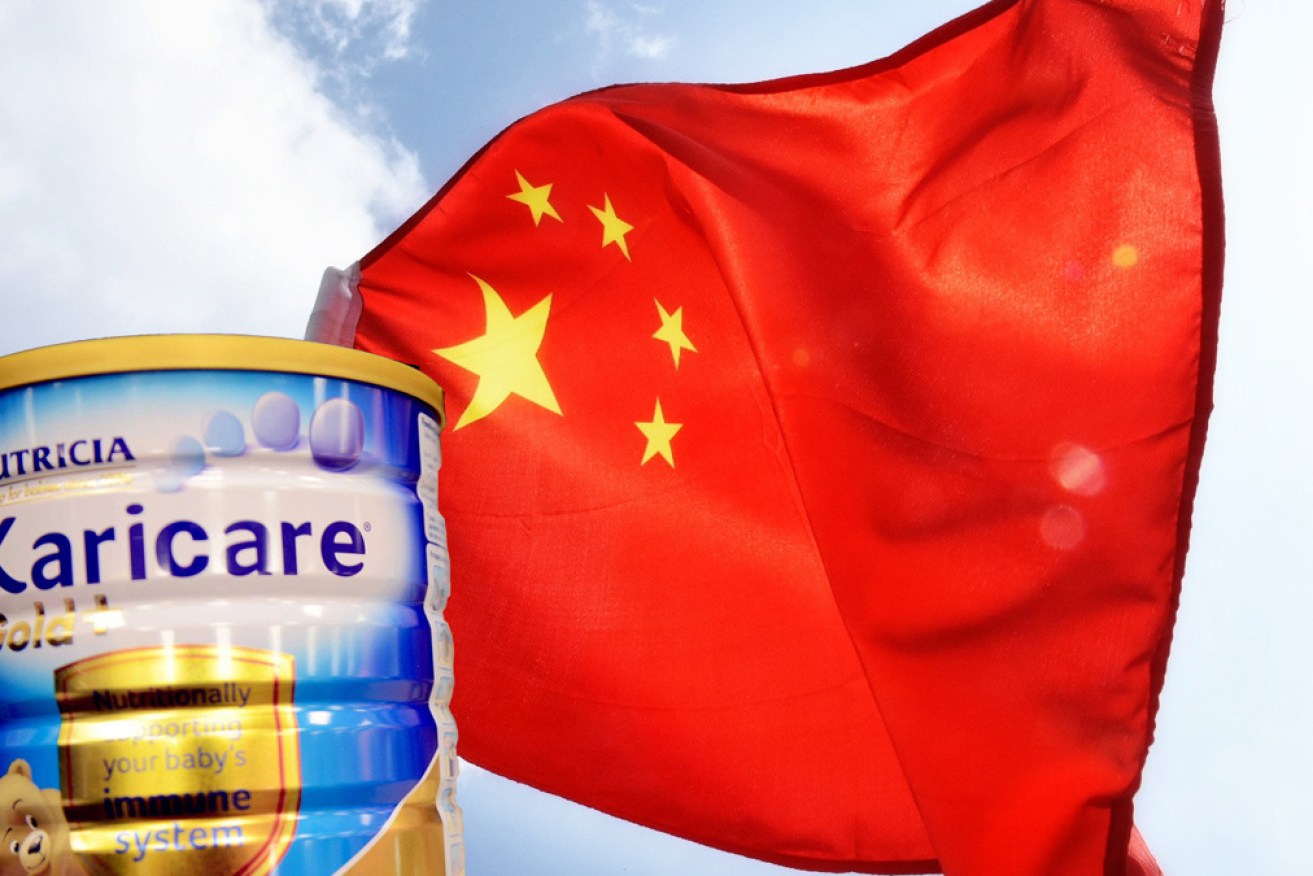The Australian stores capitalising on DIY Chinese export markets


Daigou shoppers spend millions on Australian goods. Photo: The New Daily
Commonly associated with supermarket pandemonium over sold-out baby formula, China’s ‘daigou’ market is growing and it could actually be good news for Australia.
China’s demand for Australian-made goods (especially health and well-being products) has become so great, that specialised stores such as the ASX-listed AuMake have emerged in the past decade to capitalise on this new sales channel – and it’s working.
In the March quarter, AuMake saw its gross profits climb 93 per cent (104 per cent higher than the same period only a year before), but the company’s executive chairperson Keong Chan told The New Daily the strength of the daigou market isn’t likely to result in the shortages in products bought by domestic consumers that caused an uproar in previous years.
End to the baby formula shortage
While most people associate the daigou market with images of distraught parents desperately searching for sold-out baby formula, Mr Chan said that situation is far less likely to play out again in future as manufacturers look to meet growing demand from the Chinese market.
Mr Chan said the chaotic scenes of formula tins being stripped from supermarket and pharmacy shelves could be traced back to a sudden explosion of daigou shoppers in 2015 placing immense strain on baby formula manufacturers’ supply chains.
“Baby formula, as I understand it, is not a product that can just [have supply] turned on or off. There are lots of factors that go into production,” he said.
“Any concerns around there not being enough baby formula in Australia for domestic customers is probably the result of how quickly demand came from China. When there’s such a huge increase in demand, it’s on the manufacturer to meet that with supply, and I think they’re doing that now.”
That rapid pace of uptake from daigou shoppers has even proven dangerous to some smaller product manufacturers too, Mr Chan said, with many selling out too quickly for manufacturers to keep up, forcing consumers in China to move on to other brands to cover the shortfall.

AuMake caters to daigou shoppers, stocking brands popular with Chinese buyers. Photo: AAP
“They don’t expect the demand. When daigou want to buy something, they buy it properly, and manufacturers always run out of stock,” Mr Chan said.
“We have to work with those brands to make sure their popularity isn’t maintained just for a month, but for six months, for 12 months, for two years.”
When a product can meet supply from both domestic consumers and the daigou market, the end result is local businesses increasing their global market without placing a strain on local customers.
Dr Mathew McDougall, president of the Australia China Daigou Association (ACDA), added that the reputation daigou have for buying much-needed baby formula en masse and leaving local parents stranded is something daigou shoppers hope to dispel too.
“Folks that are doing this as a business really care about their image and they see this and they cringe. Even some Chinese shoppers who aren’t daigou cringe because it creates a bad perception,” he said.
“The association has reached out to retailers to see if we can find alternate ways of selling. It’s a single product and, apart from that, the daigou have been successful in buying and on-selling goods without anyone caring.”
Dr McDougall added that daigou sales also represent an opportunity for local manufacturers to sell into China “without all the risk and cost of setting up in China”.
“If it’s harnessed correctly, it’s a tremendous economic boost for our country,” he said.
An evolving market
QUT Business School associate professor Gary Mortimer said the popularity of the daigou sales channel stemmed from Chinese consumers’ loss of trust in domestically produced goods.
Daigou shoppers typically have a connection with the buyer – usually as a family member or friend – and the trust placed in the daigou is greater than that placed in the individual brand or retailer, making direct sales of Australian goods difficult.
ACDA’s Dr McDougall agreed, but noted that Chinese authorities are “absolutely” trying to change consumers’ attitudes by clamping down on import rules and stamping out misinformation.
“That said, you’re talking to many generations who understand their family to be their tightest and most trusted source of information, and if they say this product from Australia is the best thing, they’re going to buy it,” he said.








